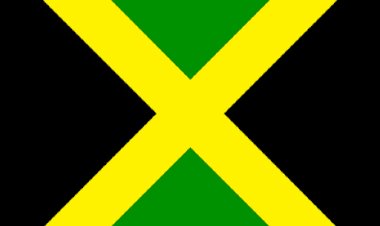Jesse Jackson’s Health Struggles Highlight the Impact of His Civil Rights Leadership
A longtime friend of the Rev. Jesse Jackson says the civil rights icon is doing better, but he’s unable to respond as quickly as he used to. “He’s getting good care and plenty of rest,” S. Todd Yeary, a civil rights attorney, said Friday morning after he visited Jackson at Northwestern Memorial Hospital in Chicago. […] The post Jesse Jackson’s Health Struggles Highlight the Impact of His Civil Rights Leadership appeared first on Capital B News.


A longtime friend of the Rev. Jesse Jackson says the civil rights icon is doing better, but he’s unable to respond as quickly as he used to.
“He’s getting good care and plenty of rest,” S. Todd Yeary, a civil rights attorney, said Friday morning after he visited Jackson at Northwestern Memorial Hospital in Chicago.
Jackson’s family thanked supporters on Thursday for their prayers following his admission to the Chicago hospital, the Rainbow People United to Save Humanity (PUSH) Coalition said.
In a statement, the family said Jackson is under observation for Progressive Supranuclear Palsy. For more than a decade, the 84-year-old has been battling the neurodegenerative disorder, which can be mistaken for Parkinson’s. But that had not stopped him from continuing to lead and participate in protests for equal rights throughout the country, including for Howard University students and after two bouts of COVID.
Jackson is the founder of the Rainbow PUSH Coalition, created by the merger of the social and civil rights organizations. Jackson retired in 2023.
“It has been very difficult since he first disclosed what was originally thought to be a Parkinson’s diagnosis to just kind of see how his body has not been able to keep pace with his heart,” Yeary said.
Yeary said it’s difficult to comprehend the difference in Jackson today compared to the statuesque leader he met over 40 years ago.
It was Yeary’s senior year of high school in 1983 when Jackson made a stop in Durham, North Carolina. Jackson was on his “Southern crusade” to register students to vote at Durham High School, and Yeary was assigned as the one-day substitute student-body president who was tasked to introduce Jackson to the podium for his speech.
Yeary only had a few minutes to prepare, but as the son of an English teacher and an oratorical competitor, he was ready.
While Yeary doesn’t remember what he said about Jackson in his introduction, he did remember what Jackson said to him afterward. Jackson asked him if he would either become a preacher or a lawyer — Yeary went on to do both.
The following year, in 1984, Jackson launched his first attempt to become the first Black president of the United States. While Jackson didn’t win the Democratic nomination that year, it was his second attempt, in 1988, that paved the way for future generations of Black people to run for president.
Back then, the process to get delegates to vote for you was more of a “winner-take-all” atmosphere, Yeary, 60, told Capital B in an interview in 2023. This meant that even if a candidate like Jackson won a significant portion of the vote — especially among Black voters or progressive constituencies — they might get few or no delegates from that state.
“So it was really unfair that by the time you got to states where constituencies may have been favorable to an outsider candidate, you had already kind of stacked the deck,” said Yeary, a former CEO of the Rainbow PUSH Coalition. “Well, Reverend Jackson pushed to get that rule changed.”
Jackson and his supporters pressed the Democratic National Committee to make the process more equitable. His advocacy led to the Democratic Party’s Rules and Bylaws Committee adopting reforms that were implemented for the 1988 presidential nomination process.
“It’s because of the Proportional Representation rule that made the run for presidency in 2008 competitive,” said Yeary, referring to then-U.S. Sen. Barack Obama’s run against Hillary Clinton, who went on to become Obama’s secretary of state.
That effort to collect votes from delegates seemed effortless for Vice President Kamala Harris when former President Joe Biden passed the torch to her in July 2024 for her 107-day campaign for the White House.
Yeary joined Jackson off-and-on throughout the civil rights leader’s over-60-year career, which included a trip to Gambia in 2012 as an iconic civil rights activist and politician.
“He not only inspired young people. I think he affirmed the sacrifices of the seniors, and they felt confident enough to kind of entrust their hopes and their dreams to him,” Yeary said.
As Jackson put political office in his rearview, Yeary said, it wouldn’t be long before he would get a call from Jackson’s first-generation Motorola flip phone to discuss his next call-to-action.
“We’ve never seen him where he could not respond just kind of spontaneously,” Yeary said while elaborating that if Jackson saw a need, “he’d be on his way to the airport.”
“It’s that kind of spontaneity that we’ve been accustomed to seeing, that he just doesn’t have the independent mobility that we’ve seen for 66 years, since he’s engaged in the right side of history and the struggles from 18-years-old in Greenville, [South Carolina], all the way up to 84 years old in Chicago.”
Weeks before Jackson’s 82nd birthday in October 2023, Yeary said Jackson still had strong concerns about labor issues in Chicago. Jackson’s voice would quickly lower in octaves, making it harder to hear even on speaker, Yeary said, but his decades of friendship with Jackson taught him “how to interpret his declining speech, to read the inflections of his voice.”
Yeary remembered how quickly Jackson was at an airport after getting through his first battle of COVID in 2021. He was there when Jackson and his wife were hospitalized for COVID. Prior to that, the pair were in Minneapolis following George Floyd’s May 2020 death.
“That dude was everywhere,” Yeary said with a giggle during a previous interview. “Because in his heart, he’s not looking to die anytime soon. You can tell that. But when his time is determined today, he’s not gonna have anything left in reserves when it comes to this important field of civil and human rights.”
“Every day there’s a new day. That’s how Rev looks at it, and has looked at it, and we’ll just,” Yeary said with a brief pause before adding, “We’ll just see.”
This story has been updated.
The post Jesse Jackson’s Health Struggles Highlight the Impact of His Civil Rights Leadership appeared first on Capital B News.























